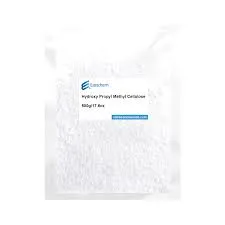
жнів . 07, 2024 22:05 Back to list
Exploring the Water Solubility Characteristics of Hydroxyethyl Cellulose in Various Conditions
Hydroxyethyl Cellulose Solubility in Water
Hydroxyethyl cellulose (HEC) is a cellulose derivative that has gained significant attention in various industrial and research applications due to its unique properties. As a non-ionic, water-soluble polymer, HEC is derived from natural cellulose, a biopolymer found in plant cell walls. Its remarkable solubility in water, along with its rheological properties, makes HEC a valuable component in many formulations, including cosmetics, pharmaceuticals, food products, and construction materials.
Hydroxyethyl Cellulose Solubility in Water
One of the fascinating aspects of HEC solubility is its pH dependence. HEC is generally soluble in a pH range of about 3 to 11, which allows it to be utilized in a wide variety of formulations that may be acidic or alkaline. This feature makes HEC particularly useful in the pharmaceutical industry, where it is often used as a thickening agent in topical formulations, drug delivery systems, and ophthalmic solutions. By modifying the degree of substitution and molecular weight during synthesis, manufacturers can tailor HEC to meet specific solubility and viscosity requirements, thus enhancing its functionality across different applications.
hydroxyethyl cellulose solubility in water

In the food industry, HEC serves as a thickener, stabilizer, and emulsifier. Its ability to form stable emulsions while maintaining clarity makes it an attractive choice for products like sauces, dressings, and dairy items. Moreover, its solubility in cold water is advantageous for instant food products, as it can be easily incorporated without requiring heat to dissolve. This not only simplifies processing but also helps in retaining the nutritional quality of food items.
In construction, HEC is utilized in cement-based applications as a water-retention agent. By improving the workability and consistency of mortar and plaster, HEC helps to enhance the performance of construction materials while minimizing the risk of cracking and shrinkage. The solubility of HEC in water ensures even distribution within the mixture, contributing to the overall durability of the final product.
Despite its advantageous properties, HEC is not without limitations. The effectiveness of HEC as a thickening agent can be compromised by the presence of high concentrations of salts or other electrolytes, which can lead to 'salting out' effects. Additionally, variations in temperature during the dissolution process may affect the viscosity of the final solution, underscoring the importance of controlled conditions in industrial applications.
In summary, hydroxyethyl cellulose is a versatile and widely used polymer that showcases excellent solubility in water, making it an essential ingredient in various industries. Its applications range from pharmaceuticals to food and construction, where its ability to modify viscosity, stabilize emulsions, and enhance product performance is leveraged. Understanding the principles governing its solubility can lead to the development of more effective and innovative formulations, ensuring that HEC remains a crucial element in modern industrial practices.
-
The Widespread Application of Redispersible Powder in Construction and Building Materials
NewsMay.16,2025
-
The Widespread Application of Hpmc in the Detergent Industry
NewsMay.16,2025
-
The Main Applications of Hydroxyethyl Cellulose in Paints and Coatings
NewsMay.16,2025
-
Mortar Bonding Agent: the Key to Enhancing the Adhesion Between New and Old Mortar Layers and Between Mortar and Different Substrates
NewsMay.16,2025
-
HPMC: Application as a thickener and excipient
NewsMay.16,2025
-
Hec Cellulose Cellulose: Multi functional dispersants and high-efficiency thickeners
NewsMay.16,2025







